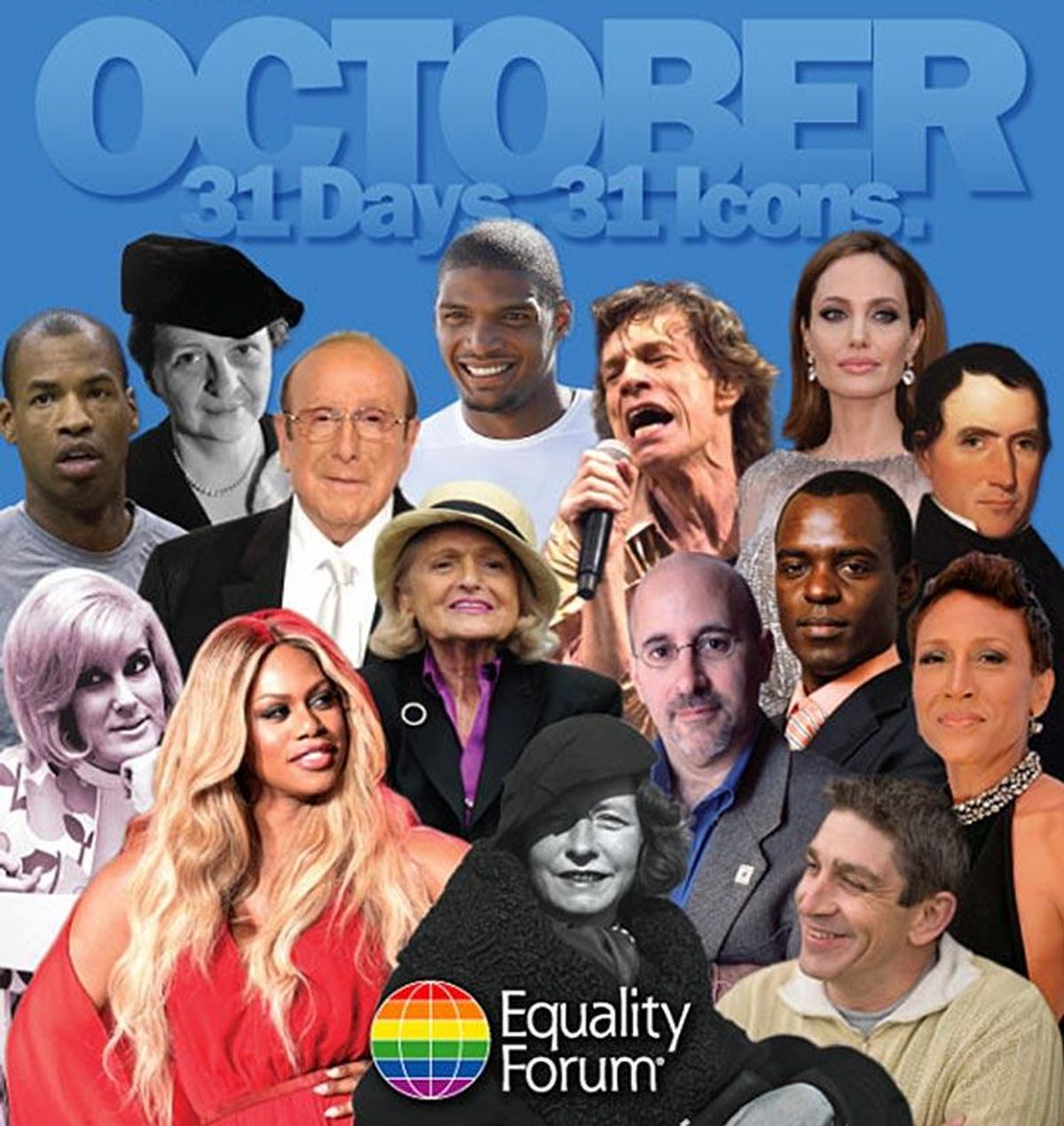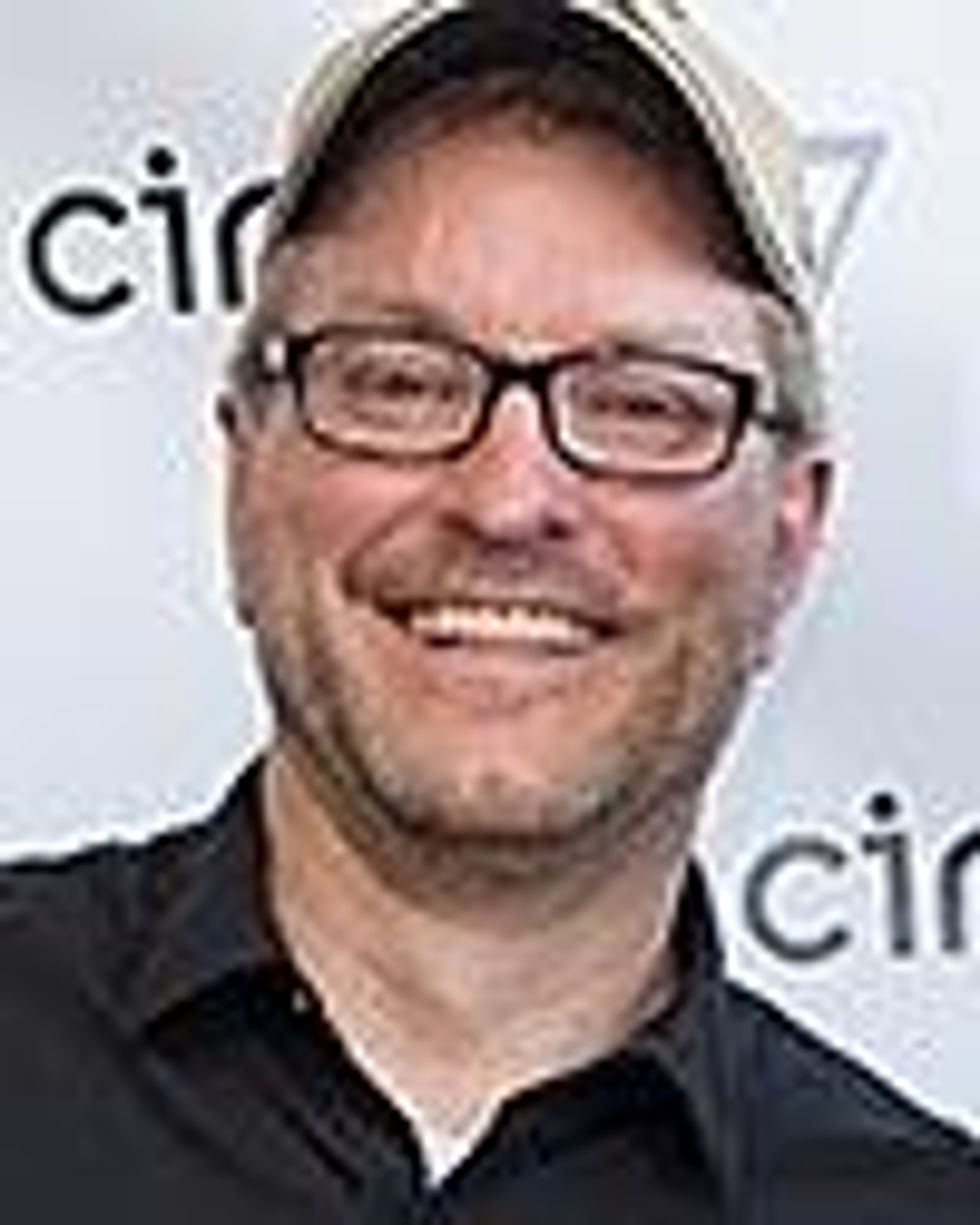
The founder of LGBT History Month, which kicks off Thursday, explains how learning about our past helped him live a more honest, open, and integrated life.
October 01 2015 4:30 AM EST
December 23 2015 1:13 AM EST
By continuing to use our site, you agree to our Private Policy and Terms of Use.

The founder of LGBT History Month, which kicks off Thursday, explains how learning about our past helped him live a more honest, open, and integrated life.
While my family slept in on Sunday mornings, I was always up with the sun, sitting pajama-clad and crossed-legged in the middle of the living room floor eating a bowl of Trix and watching Jerry Falwell's Old Time Gospel Hour, mesmerized by every word out of his Southern Baptist mouth and as much by the sign language lady in the turtleneck signing away in a holy oval that occupied the lower left of the screen. My 10-year-old self was looking for meaning in the warm glow of Lord's Day television, live from Lynchburg, Va. Falwell gave me a story bigger than my own.
Turning 50 this year prompted a near death experience-like life review. I now see that much of what I've done and most of what's motivated it has grown out of trying on different answers to the big questions and trying to find my place in the world: Where do I fit in? How do I find meaning? Does any of this make sense?
As a child and teen, I looked to religion for answers and for a sense of place and purpose. I spent a good deal of the first 20 years resting in the (fundamentalist Christian) supernatural. That's why Jerry Falwell and I flirted for a decade (figuratively) before I outgrew him: "Look, Jerry, it's not you, it's me." Religion no longer had all the answers to all the questions I was asking.
In my early 20s, I turned to family history as a guidepost. I talked to my parents, aunts and uncles, and my only surviving grandparent about our families' pasts -- where the Wilsons and Ferrells and Millers and Gambles and Gilberts came from and how shame and suffering and triumph and tragedy shaped us and made us who we were.
Genealogical research begat a desire to research my family's role in the big history of America and in the bigger story of the human race. To pinpoint my place in the course of our national experience and in the shared memories of our species, I majored in history in college. I dug deep, seeking to uncover a foundation upon which to build a stable and meaningful adult life.
I did find anchoring roots. The study of religion helped me understand what it means to be a spiritual being and years of poring over history (family, American, and world) taught me what it means to be a person born in America to a particular family at a precise moment in the narrative. By 25, I felt grounded.
But I had not yet reconciled my life as a gay man in the context of what I had learned. When the coming-out process began in my mid-20s, once again I turned to history to help make sense of it all. I read everything I could get my hands on about gay history, from the scholarly and well documented to the popular and sometimes even silly, hoping to see myself in these outsiders.
I looked to LGBT history for precisely the same anchors I had searched for my entire life -- meaning, purpose, and support. And LGBT history gave me self-confidence as a gay person and strengthened my resolve to live, as best I could, an honest, open, and integrated life. It gave me a deeper sense of place and potential. Could it do the same for others? I wondered.
As a teacher, I had long been a supporter of various history months, the annual reminders that not all history is made by straight white men. Carter Woodson founded Negro History Week in 1926 because he believed African-Americans had been neglected in the canon, and that a remembrance of things past empowered the present. Decades later, Latinos and women and Asian-Americans, feeling likewise, founded Hispanic Heritage Month, Women's History Month, and Asian-Pacific Islander Heritage Month.
I wanted the same for our community and in January 1994 proposed that October 1994 be recognized as the first annual LGBT History Month. The idea took hold quickly and each year since has witnessed more participating colleges and community groups. Because the study of history has done so much for me, I am proud that this October marks the 22nd annual event. I know Jerry Falwell would not approve, but I do.
